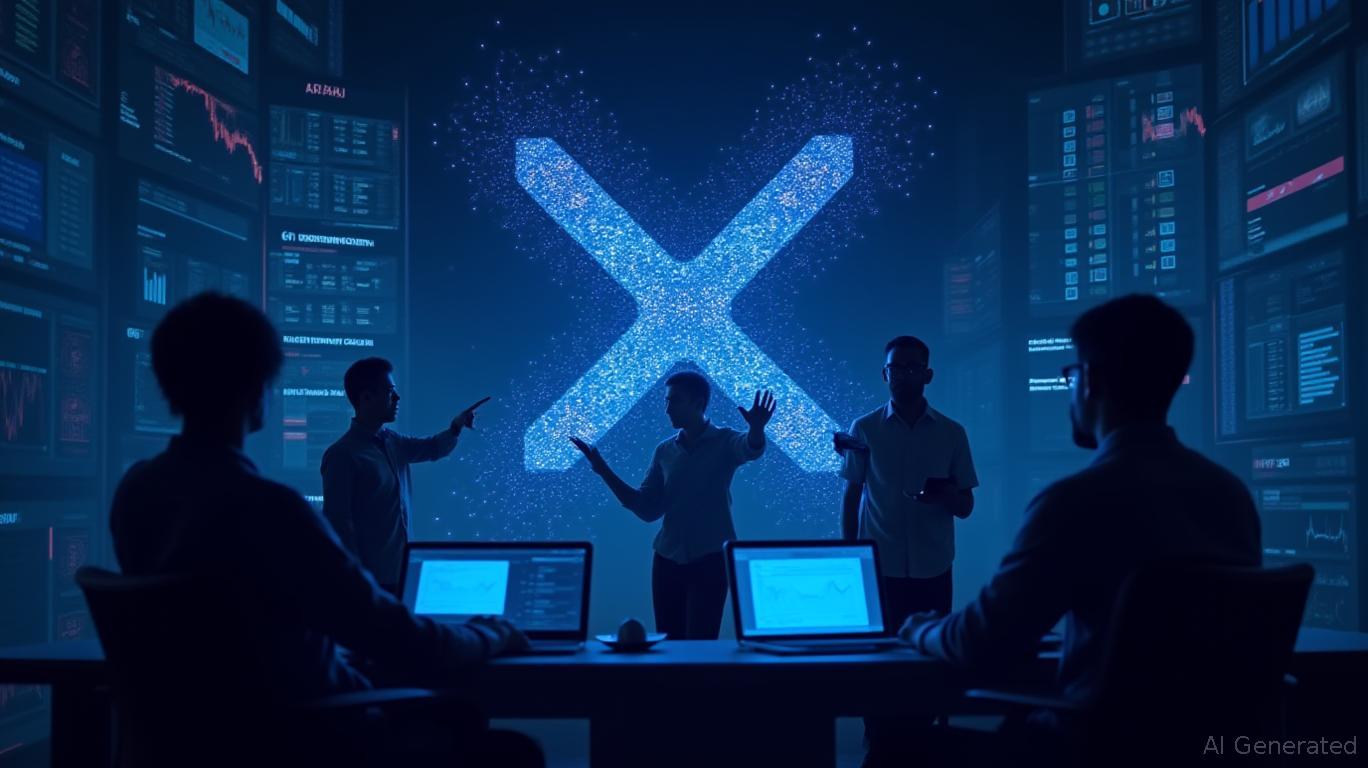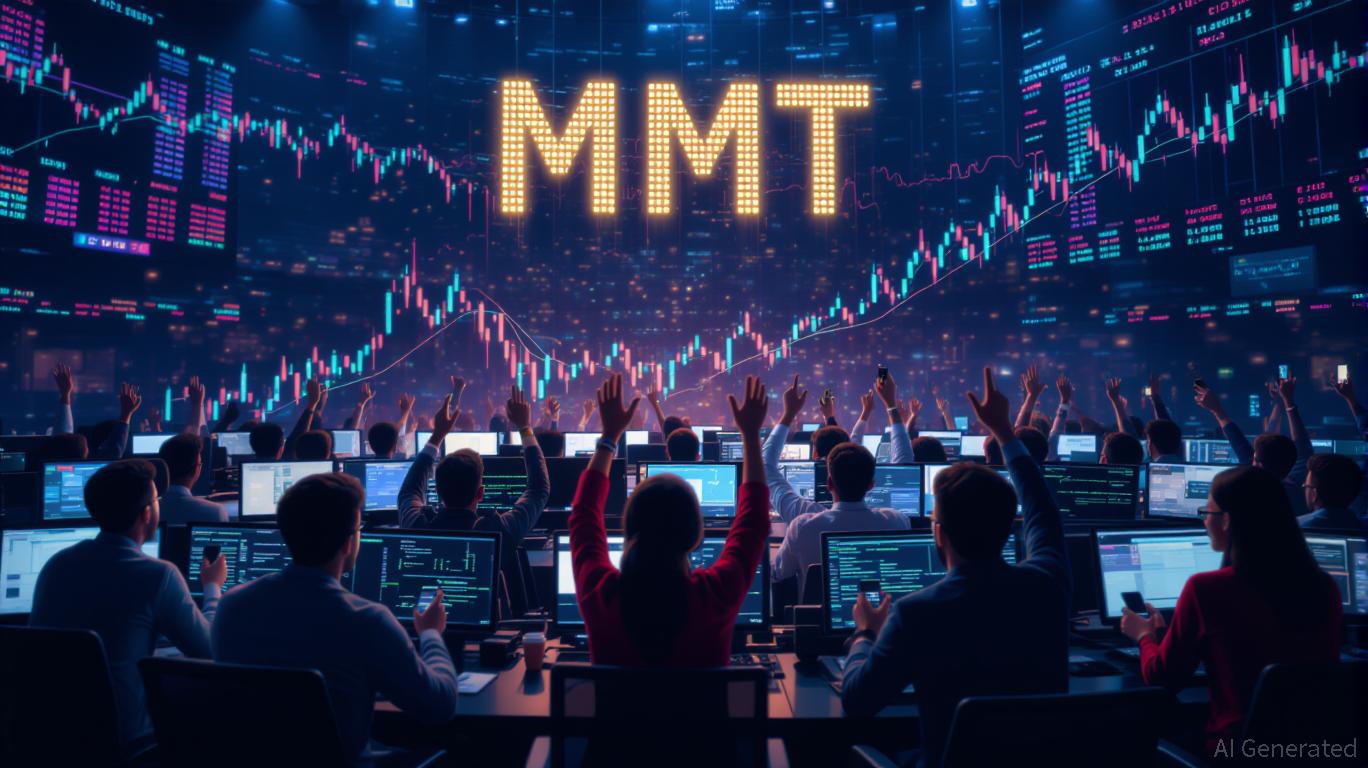XRP News Today: After SEC Ruling, XRP Stands Out as a Worldwide Bridge Currency
- Ripple CEO Brad Garlinghouse clarified the company's independence from XRP, emphasizing decentralized governance and SEC lawsuit resolution in August 2025. - XRP's role as a bridge currency enables fast, low-cost cross-border payments for 300+ institutions, reducing costs by up to 70% compared to traditional systems. - Post-lawsuit regulatory clarity boosted XRP's price over 500% to $3.10 in 2025, with institutional ETP demand reaching $214M and first U.S. XRP ETF launched in September 2025. - Ripple's $
Ripple CEO Brad Garlinghouse has worked to clear up ongoing confusion regarding the distinction between Ripple, the company, and

The CEO highlighted that, unlike Ripple which operates as a corporation with formal leadership and a board, XRP does not have a central authority. "People sometimes claim, 'XRP has a CEO,' and I ask, who would that be?" Garlinghouse said, noting that the XRP ecosystem is made up of hundreds of independent participants and businesses. The governance of the XRP Ledger further demonstrates this decentralization: any network upgrades require broad consensus, and even proposals backed by Ripple have been turned down, underscoring the community-led nature of decision-making.
The conclusion of the SEC case, which required Ripple to pay a $125 million fine for institutional sales of XRP but affirmed its non-security status for retail transactions, has brought regulatory certainty and increased market optimism. Garlinghouse described the settlement as a "strategic win," emphasizing that it enables Ripple to concentrate on growing its cross-border payments business and institutional collaborations. He also reaffirmed his support for XRP through public gestures, such as getting an XRP-themed tattoo, to show his confidence in the asset's long-term value.
XRP continues to serve as a key bridge asset for international payments, forming the backbone of Ripple's business model. The token powers fast, cost-effective cross-border transfers through RippleNet, which is utilized by more than 300 financial organizations, including Santander, SBI Holdings, and Standard Chartered. By minimizing dependence on conventional correspondent banking, XRP allows for transactions to settle within seconds instead of days, and can reduce costs by as much as 70%. Ripple's recent purchase of Hidden Road, a leading institutional custody provider, further enhances its infrastructure and could attract significant institutional investment.
Industry experts have reacted favorably to the new regulatory landscape. In early 2025, XRP's value jumped over 500%, peaking at $3.10, while institutional interest in XRP-based exchange-traded products (ETPs) reached $214 million in the first quarter. Analysts such as Marcus Lin from BlockEdge Research believe that if XRP surpasses $2.40, it could aim for $3.50 or more, though price swings remain a concern. The debut of the first U.S.-listed spot XRP ETF, REX-Osprey XRPR, in September 2025, further reflects increasing institutional involvement.
Garlinghouse also pointed to broader regulatory changes under the Trump administration, commending moves to establish "practical, reasonable" crypto regulations. Ripple's advocacy for stablecoin rules and market structure reforms aligns with its call for federal regulatory clarity, which it argues will benefit both businesses and consumers. At the same time, Ripple has adjusted its communication approach, discontinuing quarterly XRP market updates to prevent possible regulatory misinterpretation.
As XRP evolves from a speculative investment to a widely used financial instrument, its future will depend on institutional uptake, regulatory consistency, and technological progress. Ripple is continuing to upgrade the XRP Ledger—for example, by introducing Multi-Purpose Tokens for real-world assets—to broaden its applications beyond payments. With legal issues resolved and global alliances growing, XRP is set to play a crucial role in transforming international finance, connecting legacy systems with blockchain-powered solutions.
Disclaimer: The content of this article solely reflects the author's opinion and does not represent the platform in any capacity. This article is not intended to serve as a reference for making investment decisions.
You may also like
ALGO Rises 2.52% Despite Fluctuating Short-Term Results
- ALGO rose 2.52% in 24 hours to $0.1421, a short-term rebound amid a broader bearish trend. - Despite a 4.1% monthly gain, ALGO fell 57.49% annually, reflecting altcoin market volatility and macroeconomic pressures. - Analysts predict near-term consolidation as traders assess market conditions and regulatory updates, urging caution and focus on fundamentals for long-term strategies.
The Comeback of Momentum (MMT): Can This Strategy Last?
- Momentum (MMT) price surge driven by social media sentiment and retail investor behavior, mirroring 2021 GameStop frenzy. - Academic studies link social media sentiment to short-term stock price spikes, but warn of disconnect from financial fundamentals. - Overconfidence and herd behavior in retail trading amplify speculative bubbles, risking abrupt corrections when sentiment shifts. - Regulatory scrutiny grows as social media-driven markets challenge traditional finance models and market stability.

Ethereum Open Interest Falls From $12.6B to $6.2B in 3 Months

Only 4 Altcoins Stand Out: Trilemma Leaders Targeting a Potential 3x Rally in 2025.
